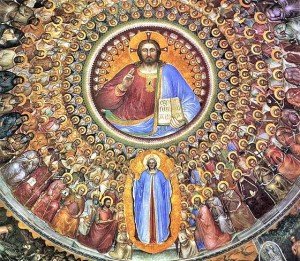It is my hope that this article about being called to holiness is beginning to resonate with my readers. Spiritual growth comes when we understand that we are called to holiness – called to be saints.
It is my belief that early Christianity had a much clearer understanding of this fact. It seems that the process the Church has developed to recognize saints has deterred most Christians from thinking that they are called to be saints. This is really too bad. The process is meant to formally recognize those who the Church believes achieved a sense of the meaning of life and tried, to the best of their ability, to live like Jesus lived. Sainthood did not mean in the early Church that the person recognized as a saint had reached a state of perfection. In fact all the early saints were martyrs and therefore recognized as models for others to imitate because they decided to die rather than deny their belief in Jesus Christ. So sainthood in the early Church didn’t mean perfection but, rather, loyalty to a belief in Jesus Christ.
It was only later in the history of the Church that non-martyrs were recognized as saints. Persecution of Christianity ceased after 313 CE and so there were no longer martyrs (Although after this time there were occasionally people put to death because of their faith in Jesus, it was not until the 20th Century, when Communism came into existence, that a whole new group of martyrs were created).
It was after Christian martyrdom was suppressed that the Church began looking for other persons who could serve as models for how to lead a Christian life. A number of new categories of saints came into existence. The Church began to recognize other ways that people demonstrated their commitment to the Gospel or to belief in God. Although there are other categories of saints, the Liturgy lists these: forefather, fathers, patriarchs, prophets, apostles preachers, evangelists, confessors, ascetics and just spirits made perfect in the faith. This last category identifies people who are perfect in the faith but not necessarily people who have reached perfection (that is a person who always loves others unconditionally and never hesitates in forgiving others). Of course the Gospel tells us that none are capable of reaching perfection except Jesus Christ.
It is interesting how so many religious ideas have come about which are not based on the faith as embraced by the early followers of Jesus Christ. That is why, I believe, it is critical that we have a better understanding of how Christianity developed. The early Christians were all called saints, that is people who desired to live like Jesus Christ!
Think about this!

